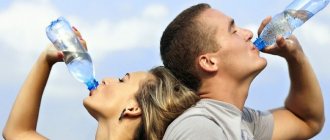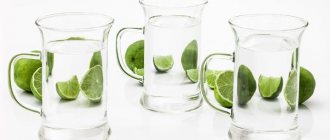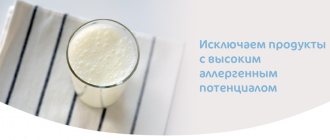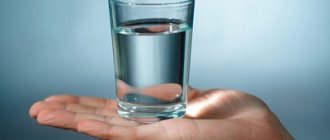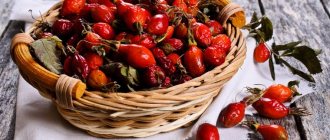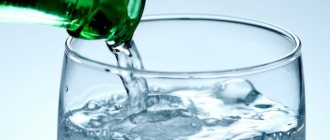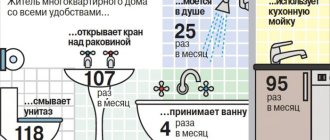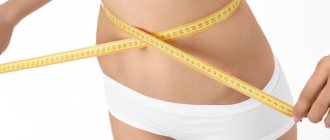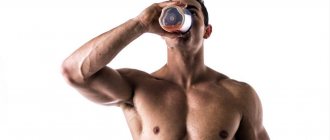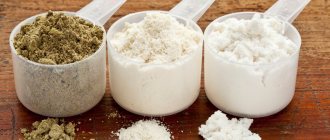The habit of accompanying a meal with tea or drinking a cup of coffee after a hearty lunch is a common norm. But how safe is the food if you replace hot drinks with cold ones? Nutritionists and doctors have been arguing about this for quite some time. So how long after eating can you drink water with ice or carbonated water? Should you give up an aperitif in a restaurant? In an effort to follow the recommendations of nutritionists, some of us try to wash down everything we eat during the day with water. But how correct is this approach?
As such, the ban applies exclusively to cold drinks themselves - regardless of whether it is a pure liquid with a balanced mineral composition or “the entire periodic table” in one bottle in a can of soda. The time that you have to wait before taking them after a meal is at least 2 hours - this is exactly the answer to the question: how long after a meal can you drink water, experts give. This is due to the peculiarities of the digestive process, which under the influence of additional liquid can slow down, causing serious discomfort and leading to problems in the functioning of the digestive organs, constipation, and increased gas formation.
How much fluid should you drink per day?
You need to drink at least two liters of water (8-10 glasses) per day. This opinion is shared by most modern nutritionists. For people with normal weight, the required volume of water is calculated using a simple formula: per 30 kg of body weight - 1 liter of water. This does not include the consumption of soups, juices, tea, coffee and other liquid foods. Otherwise, the body will perceive these liquids as food, and for the normal course of metabolic processes, pure water without any additives is required.
Coffee and coffee-based drinks, by the way, contribute to dehydration. Therefore, along with a small cup of coffee, you should always drink one large glass of water. Of course, these figures are very conditional and are selected individually, but they indicate the need for regular consumption of large amounts of fluid.
Should you drink water if you are not thirsty?
Despite the importance of drinking water, not everyone enjoys drinking it. Some people cannot do without water at all and readily drink it throughout the day, while others “remember” about it only in hot weather, taking just a couple of sips when their throat gets very dry. Often people do not differentiate between the feeling of hunger and the feeling of thirst and have another snack instead of a glass of water. This contributes to the appearance of excess weight and disruption of metabolic processes.
Different people have different needs, but this rule does not apply when it comes to water. Water should be consumed regularly, even if you are not very thirsty. According to experts, the latter can occur already at the stage when the fluid deficit is 10% (remember, a loss of 20% of fluid can lead to the death of a person). Therefore, when leaving home, you should remember to take a small bottle of water with you and take a sip every time you remember about it.
Heatstroke is a very serious condition, but with simple measures you can easily prevent it.
Wear light clothing made from natural materials (linen, cotton) and hats in light shades, this will help prevent the development of heat stroke.
If possible, install climate control equipment (air conditioning, split system) in your home.
Drink more fluids, especially during warmer months, to reduce your risk of heatstroke.
Before using any medications, be sure to consult your doctor.
Never leave your car in the sun. If this happens, do not sit in a hot car for more than 10 minutes.
Avoid strenuous physical activity during the hot season. While working, take rest breaks from time to time and drink more fluids.
Supervise children and do not allow them to play in hot weather in the open sun.
Avoid alcoholic drinks and drinks with high caffeine content (black tea, coffee), because These drinks disrupt the body's thermoregulation.
Summer drinking regime - what and how to drink in the heat
What is drinking regime? This is the most rational order for drinking water during the day. It should be noted that the drinking regime is directly tied to proper nutrition, since water takes part in thermoregulation processes, dissolves mineral salts, “transports” nutrients, and removes metabolic products from the body.
You need to drink water and cooling drinks as much as your body requires.
How to drink water correctly: before meals or after?
The most optimal is half an hour before meals and an hour after. Then the incoming liquid will not interfere with normal digestion.
Of course, the summer heat provokes a desire to drink water and drinks as cold as possible. But it is very undesirable to drink cold water for several reasons.
Since the drinking regime is directly tied to proper nutrition, water with a temperature below 20 degrees is not suitable because:
- never quenches thirst, because the temperature in the human gastrointestinal tract is 36°C and above, and when cold water gets there, the mucous membrane is cooled and the processes of digestion and absorption are inhibited. The vessels in the intestinal mucosa reflexively contract from the cold, water does not flow from the intestines into the blood, and the body cannot “get drunk” for a long time.
- increases intoxication of the body, since cold water that does not have time to enter the blood stagnates in the intestines, gradually heating up. During this time, it softens and dissolves toxins - and then harmful toxins are absorbed with this water heated inside the body.
What drinks are suitable for summer?
You can drink table mineral water. You can drink tap water only if you are confident in its quality, passed through modern filters that guarantee purification from contamination and excessive mineralization.
Drinking compotes in the summer heat is also useful - you just need to make sure they are not sweet and chilled. By the way, they can also be given to children.
To improve the functioning of the gastrointestinal tract, fermented milk products are useful at night. At the same time, they cool and help the kidneys.
Summer heat often provokes various problems associated with the digestive system. In the heat, your diet requires special attention.
Limit your consumption of black tea and coffee. Sugary juices and carbonated drinks do not quench your thirst. Give preference to mineral water and green tea. A drink made from oregano, mint tea is an excellent thirst quencher and a source of vitamins. In hot weather, mint can also be used as a side dish. It is best to eat fruits in the morning. Fruits eaten after meals or at night provoke fermentation processes in the stomach, which is absolutely undesirable. Oranges, grapes, plums, apricots, pears, peaches, melons and any other fruits that are easily digestible by our body are excellent components of the summer table, replenishing the body with essential vitamins. It is especially worth paying tribute to sour berries, for example, gooseberries and currants.
Fresh vegetables in any form, including salads, are indispensable at this time. They hardly support fermentation processes. Cucumbers, zucchini, turnips, rutabaga and radishes, along with fruits, can almost completely satisfy our need for food during the heat. And we can't forget about greenery. Any green salads, celery, parsley and dill will not only make food tastier, but will also serve as a source of microelements and salts that are removed from the body through sweat. .
Remember that heat greatly reduces performance. After +260C, each subsequent degree of temperature increase leads to a decrease in performance by several percent. Proper nutrition is even more important in hot weather. In hot weather, heavy and fatty foods are undesirable. Fatty varieties of fish or meat should be replaced with lean ones. It is necessary to moderate the consumption of any baked goods and bread, meat products, legumes, and give up sandwiches and fast food products.
It is necessary to approach dairy products with caution; high temperatures provoke the development of microorganisms. It is best to choose fermented milk products at this time. For example, sugar-free kefir will quench your thirst, fill you up and compensate for the lack of a number of microelements. But fermented milk products are stored at a temperature not exceeding +4C. Indoor storage is categorically unacceptable.
Hot weather is a good period for getting rid of several kilograms of excess weight. In summer this is easier than in cold weather. Fruits and vegetables reduce the calorie content of the menu. And an increase in physical activity accelerates all metabolic processes occurring in our body.
One “but”: people suffering from cardiovascular diseases, hypertension, obesity, and those who have kidney problems should not drink a lot of liquid.
We forget about fatty meat, cakes, pancakes and Olivier salad, and lean on vegetables, fruits and dairy products. However, this does not mean that you need to completely give up fat.
Hot weather is a real test for the body. We suffer from lack of appetite, and after eating we feel heaviness in our stomach. To help the body function normally in extreme heat, nutritionists recommend a shifted diet, when main meals are moved to cooler times of the day.
By the way: in hot weather, we are more often susceptible to various intestinal infections than usual, so it is necessary to wash fruits, vegetables and herbs very carefully. Store perishable foods in the refrigerator.
When is it necessary to drink plenty of fluids?
Drinking plenty of fluids is recommended:
- when playing sports or intense physical activity;
- at elevated body temperature due to illness;
- when visiting a bathhouse, when a large volume of liquid is lost through sweat;
- if you abuse tobacco products (nicotine provokes dehydration);
- when taking certain medications that require drinking plenty of clean water;
- with daily consumption of caffeine-containing drinks (tea, coffee);
- when traveling by air, since the air on an airplane can be very dry and unfavorable for the proper functioning of the lungs.
- other situations when the body loses moisture and requires replenishment of the water balance.
Also, do not neglect the recommendations of drinking plenty of fluids in the winter, since central heating turned on and sudden changes in temperature indoors and outdoors can provoke dehydration. You need to drink water in small portions or as much as you want.
What are the best times to drink water?
The issue is especially acute in the first half, because a person can lose at least 0.5 liters of fluid overnight. You should not drink ice or hot water in the morning, as well as sour, salty or too sweet drinks. In order for the body to wake up properly, water at room temperature will be enough as a natural irritant.
A glass of such water is often compared to a light, invigorating shower, which promotes instant penetration of moisture into the intercellular space, removal of toxic substances accumulated overnight through the lymphatic system and awakening of all excretory systems (intestines, kidneys, etc.).
You should make it a rule for yourself to drink one glass of regular clean water before breakfast and any meal. If there are 5 meals, then there will be 5 glasses of water, which is already 1 liter of liquid. Water perfectly reduces the feeling of hunger, tones the body, starts the intestines and enzyme systems, brings them into a state of readiness and ensures active peristalsis. All this helps to increase the efficiency of assimilation of consumed food.
This rule should be taken into account especially by people who do not want to gain excess weight. Drinking water before meals will partially fill your stomach with liquid, which will prevent you from eating an extra piece of food.
Is it possible to drink water with food?
The habit of drinking water during meals can result in disruption of the digestive system. But a glass of sour juice or compote, on the contrary, will help digest food and improve digestion.
It is best to quench your thirst with water 2 hours after eating, but if you had meat for lunch, it is better to postpone drinking for 3 hours. This is necessary for the digestion of protein foods, which requires a little more time.
You also need to be careful about drinking water after dinner. At this time, the body is preparing for sleep, so a glass of water drunk before bed will force the body to work and will not allow it to rest due to the need to remove fluid. In the morning, a person risks waking up unrested and, quite possibly, with swelling under the eyes.
Therefore, the last intake of water should occur at a time when there are only two hours left before bedtime. If you can't sleep due to extreme thirst, take a few sips. To avoid evening hunger, you can drink a small cup of sweet tea.
It is recommended to limit the amount of water for elderly people, as well as people prone to edema and people with impaired metabolism. But for those who suffer from kidney and urinary system diseases, drinking before bedtime is not recommended at all. This will avoid frequent night urges and morning swelling.
When is water most needed?
Water is beneficial for human health at any time of the year. But for people who have reached the age of forty, it becomes an indispensable source of youthful skin. At this age, the skin loses its moisture and becomes dry and unattractive. Water stops these processes and prevents the occurrence of age-related diseases. Paradox: the older a person is, the less thirsty he is, but much more moisture is required at this stage.
Water is required for brain function, oxygenating the blood, maintaining muscle tone and slowing down skin aging. So you need to drink water constantly, but you definitely need to monitor the volume of consumption. At one time, the amount of liquid should not exceed 250 ml (a glass), otherwise you risk stretching your stomach. You need to drink the water slowly, as if tasting it.
If you prefer to drink any drinks (fruit drinks, compotes, kefir, juices, etc.) instead of water, you must understand that the body will still have to sort everything out in order to separate H?O from them. In this case, it is recommended to drink ordinary non-carbonated water so that the body does not perceive other drinks as food.
Rules for proper use of water
So, in order for water to bring maximum benefits to your health, you should:
- Start every morning with a glass of water;
- Drink water not in one gulp, but in small portions, not forgetting that in 15 minutes the body can absorb no more than 200 ml of liquid;
- Provide constant access to water, even if you are not at home. Therefore, you should always take some container of water with you;
- If you suddenly start to feel hungry, drink water first. This will allow you to determine your needs and distinguish the feeling of thirst from the desire to eat;
- Try to drink water before 19.00 pm;
- Drink water not immediately after your next snack, but only a few hours after eating, giving digestive enzymes a chance to work actively;
- Take a break from work every half hour, freeing up time for a sip of water;
- Drink water during intense physical activity;
- Add a small amount of lemon juice to water to improve the breakdown of fats.
Do you always forget that you need to drink water? Post a visible reminder of this, take a bottle of water with you, or keep one nearby if you work at the computer. Good health to you!
Can water actually be beneficial or harmful?
In order for everyone to be able to answer these questions, it is necessary to decide:
- How much water and how many calories per day you need to consume according to WHO standards. All dietary fluids should be distributed throughout the day, taking into account work and training.
Calculate your needs based on 35 ml per kg in winter and 40 ml per kg in summer. These are all liquids, including water, juices, smoothies, tea, coffee, soups, etc. Do not forget to take into account increased sweating during heat, increased body temperature, increased physical activity... The amount of water in these cases will also increase.
- When do you plan to add water to your diet: before, during or after meals and why.
Drinking water before meals will not speed up or slow down your digestion. Water is quickly absorbed by the villi of the epithelium of the digestive tract and enters the blood. Water will not stay in the stomach and will have almost no effect on appetite. Water will flush the digestive tract, clear away “garbage” and prepare you for eating.
Photo: istockphoto.com
If you plan to add water during meals, it will matter what kind of food is on your table.
When taking carbohydrates, plant foods
– water will dilute the food bolus or hummus, which will also not linger in the stomach. It and water will quickly end up in the intestines and carbohydrates will be digested there.
Protein or mixed food
, with or without water, will already linger in the stomach. The sphincter from the stomach to the duodenum will close as soon as protein food is in the stomach and protein digestion begins. The intake of proteins with water will delay it a little - gastric juice will be diluted. But clearly regulated processes in the body will quickly equalize the pH of gastric juice and protein digestion will take its course.
The recommended increase in water in the diet with an increased protein content (more than 2 grams per kg of body weight) is associated mainly with an increased load on the liver and kidneys. Water will help remove protein metabolic products - urea and ketone bodies. Its increase does not have to be associated with food intake.
Drinking water after meals will not have any special effect on the speed of digestion or appetite. Therefore, drink it if you want, or not. The best choice after a meal would be dessert drinks: coffee, teas, compotes, jelly.
Photo: istockphoto.com
- What type of gastric secretion do you have? This will not be superfluous for more accurate diet planning (and water is also part of the diet).
In addition to the normal type, according to the method of K.M. Bykov and T.I. Kurtsin, four more pathological types of gastric secretion are determined: excitable, asthenic, inert and inhibitory. Each of them will have its own limitations. With an excitable type, for example, not only soup will be superfluous, but also water during meals.
- Do you have arrhythmias and seizures?
Eating and drinking behavior cannot be considered in isolation from macro- and microelements. First of all, sodium and chlorine, magnesium, calcium, phosphorus and others. Therefore, when adding water, do not forget to balance your diet with macro and microelements. This will affect impulse conduction, membrane permeability and the quality of life of all cells.
Tap or filtered water: which water is safer to drink?
- Are you at risk?
Water must not only enter the body, but also be removed from it. For risk groups, with heart disease, arterial hypertension, kidney disease, increasing water in the diet is a reason to consult a doctor.
- Well, absolutely for professionals. Don't forget about endogenous water. To more accurately calculate the volume of fluid in the diet, it is necessary to decide on the type and dosage of physical activity.
The consumption of glycogen reserves during physical activity contributes to the additional release of water and its subsequent excretion. When one gram of fat is oxidized, a little more than one gram of endogenous water is formed. Accordingly, with increased breakdown of adipose tissue, the amount of endogenous water increases. These processes will require clarification and a correct approach to the drinking regime of a person involved in the process of combating excess body weight.
Photo: istockphoto.com

